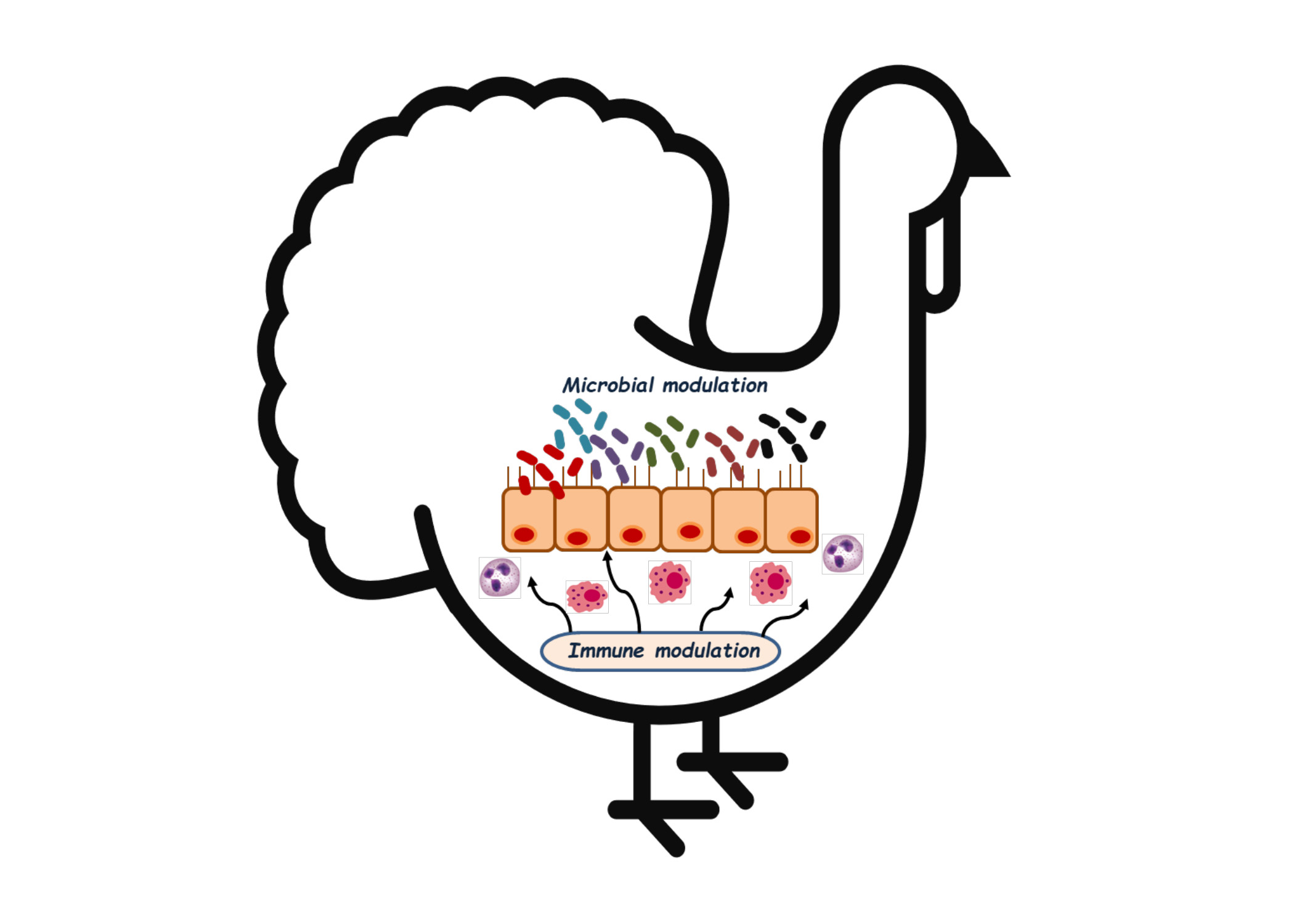Microbes are integral to gut health. Some of these microbes cooperate at different segments of the gut to resist invading pathogens (bad bugs). In turkeys, these invading pathogens utilize compromised gut conditions in the host for their survival and can evade the bird’s immune system. Salmonella is such a pathogenic microorganism that can use the unfavorable conditions in the turkey gut and pass on to the meat during processing. If their load in the turkey products is high and if such a compromised product is consumed without proper cooking, it can result in severe illness in humans. This condition, Salmonellosis, has severe public health impacts because of treatment failures resulting from antibiotic-resistant Salmonella strains encountered in turkey production. Food-related outbreaks resulting from the consumption of contaminated products would be a disaster for the sustainability of Minnesota’s turkey industry as well. Due to the issue of drug resistance in bacteria, the use of antibiotics in production has been restricted only to treat turkey diseases and is no longer used to support bird growth.
PhD student Shijina Raj Manjankattil Rajan (Animal Science), in a project called “Determining the Effect of a Novel Probiotic, Propionibacterium freudenreichii, Alone or Combination With Salmonella Vaccine on Salmonella Colonization, Cecal Microbiome, and Immunity in Turkeys,” is working to develop an alternative to antibiotic strategy to control Salmonella in turkey production. This strategy should be capable of improving the gut health and immunity in the bird to resist the survival of Salmonella in their guts. This immunological approach explores the potential of a dairy-origin probiotic, Propionibacterium freudenreichii, and a vaccine to resist Salmonella by improving gut health and immunity in turkeys. Earlier research has shown that this strategy could reduce Salmonella from colonizing the turkey gut. It was also evident that the strategy resulted in a higher reduction of Salmonella in the gut compared to individual treatments. The promising results from this study prompted an investigation on the mechanisms by which the strategy works in the bird gut. Such mechanistic studies are highly needed to support Minnesota’s turkey industry to remain the leader in U.S. turkey production with no compromise on the safety of the products made in their facilities for human consumption. This immunological strategy will beneficially support the good microbes in the gut and control the bad ones such as Salmonella. The project will employ 16S Illumina sequencing, RNA-seq analysis, and other genomic quantitation tools to measure the changes in the microbial population and immune mechanisms at the turkey gut–pathogen interface. This study will highlight the unknown mechanisms by which the alternative interventions improve turkey gut health and make Minnesota’s turkey supply safer.
Some funding for this project was provided by a 2022 University of Minnesota Informatics Institute MnDRIVE PhD Graduate Assistantship. The UMII MnDRIVE Graduate Assistantship program supports U of M PhD candidates pursuing research at the intersection of informatics and any of the five MnDRIVE areas:
- Robotics, Sensors and Advanced Manufacturing
- Global Food Ventures
- Advancing Industry, Conserving Our Environment
- Discoveries and Treatments for Brain Conditions
- Cancer Clinical Trials
This project is part of the Global Food Ventures MnDRIVE area.
Research Computing partners:
- University of Minnesota Informatics Institute
Complete list of 2022 UMII MnDRIVE PhD Graduate Assistantships.
